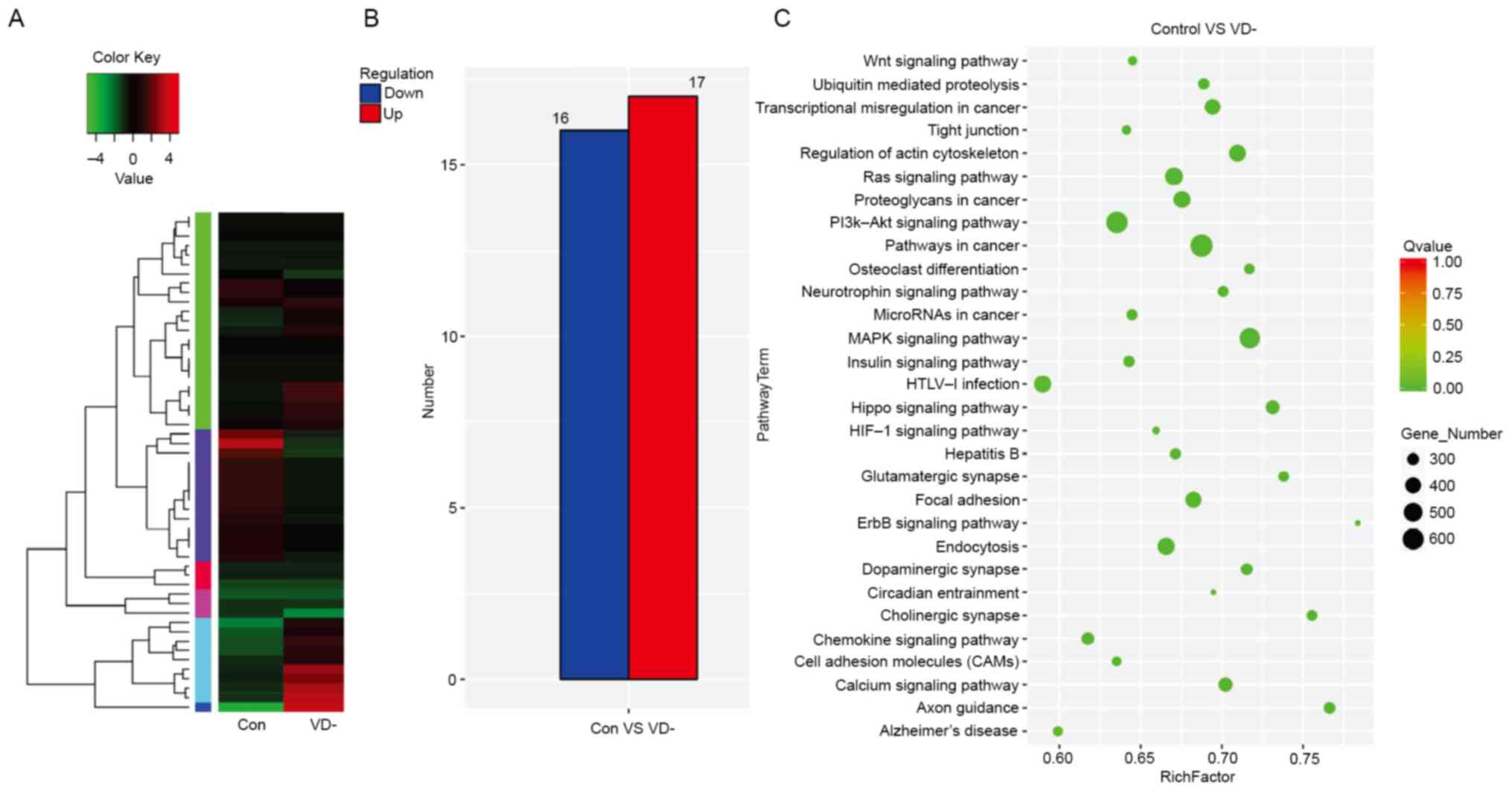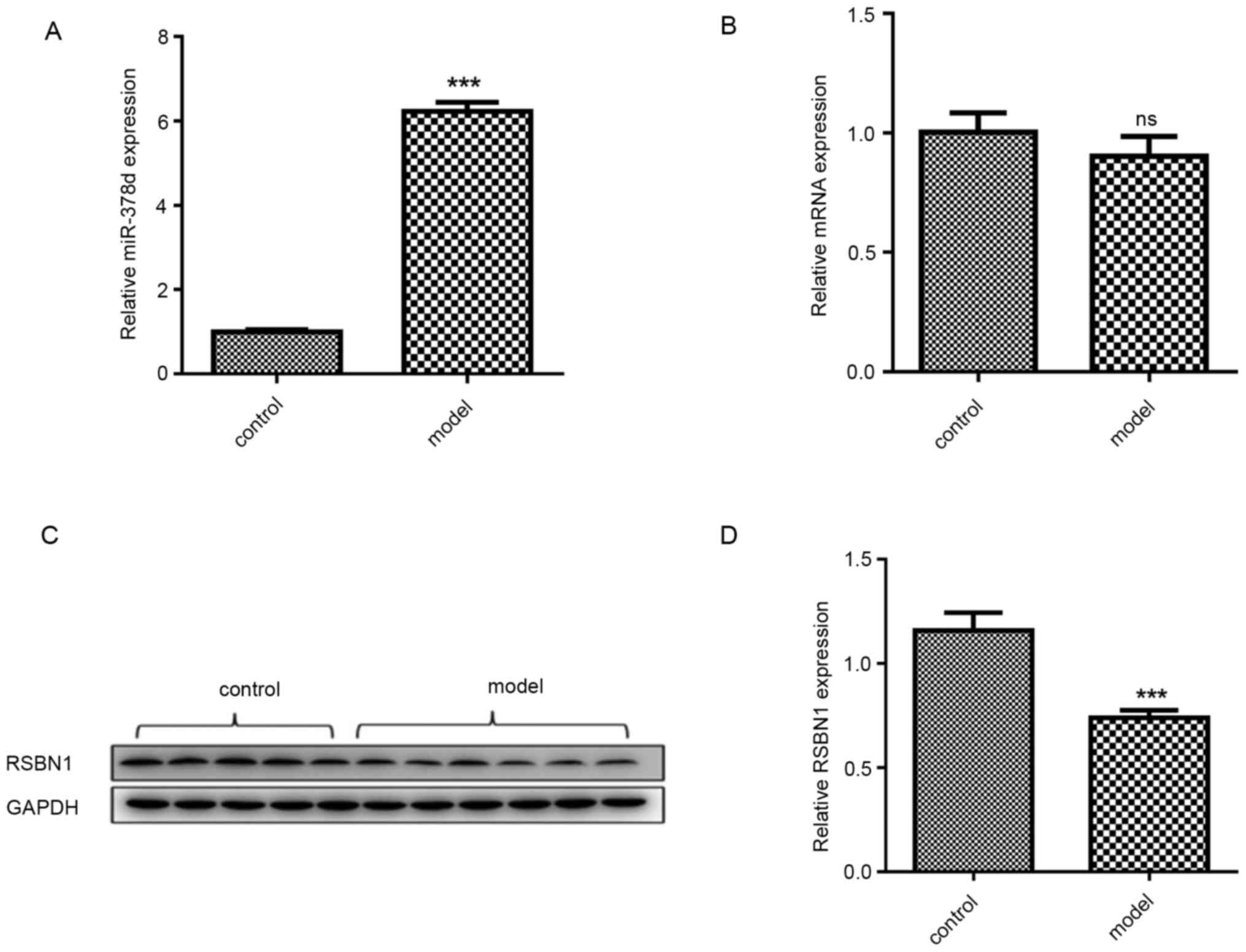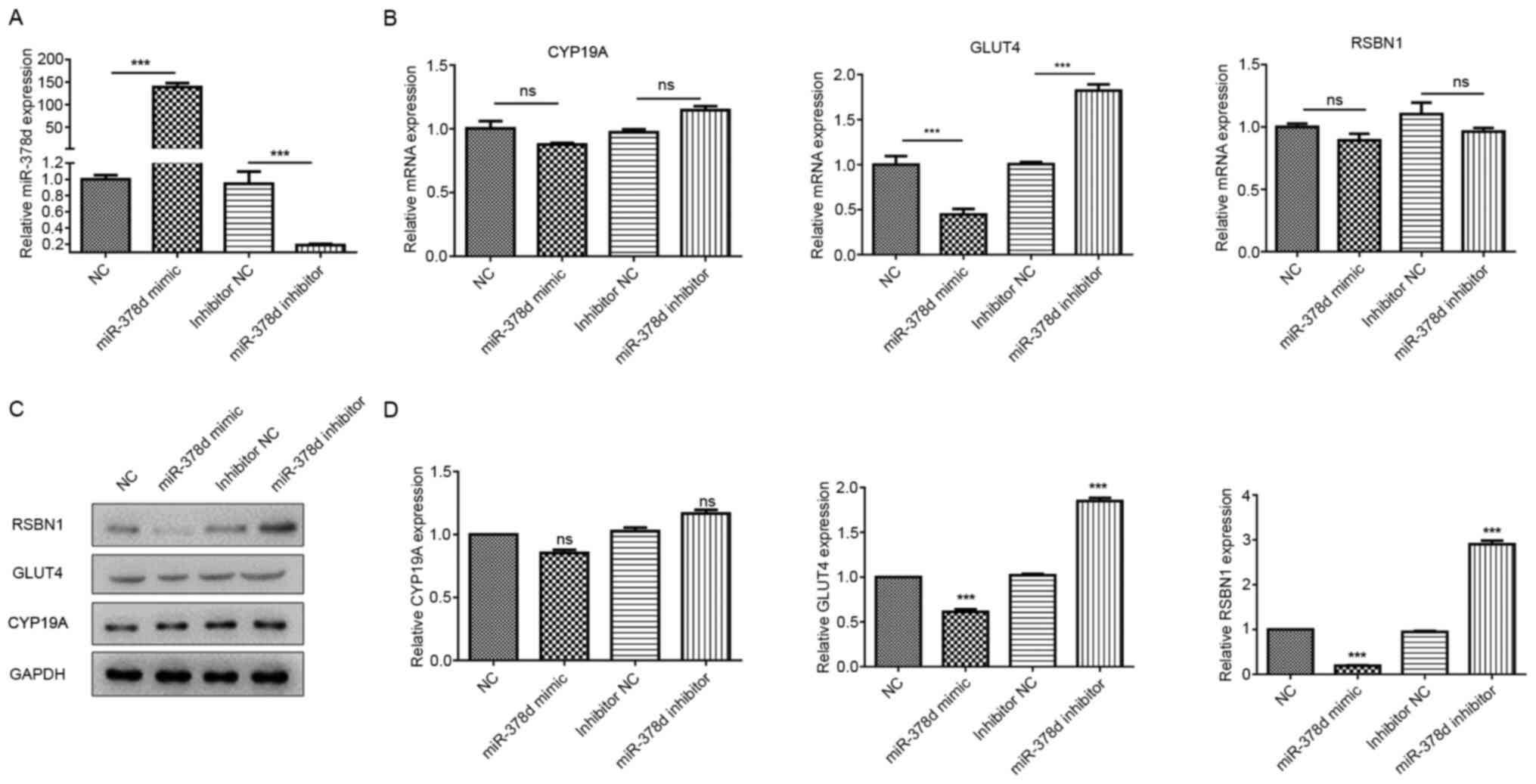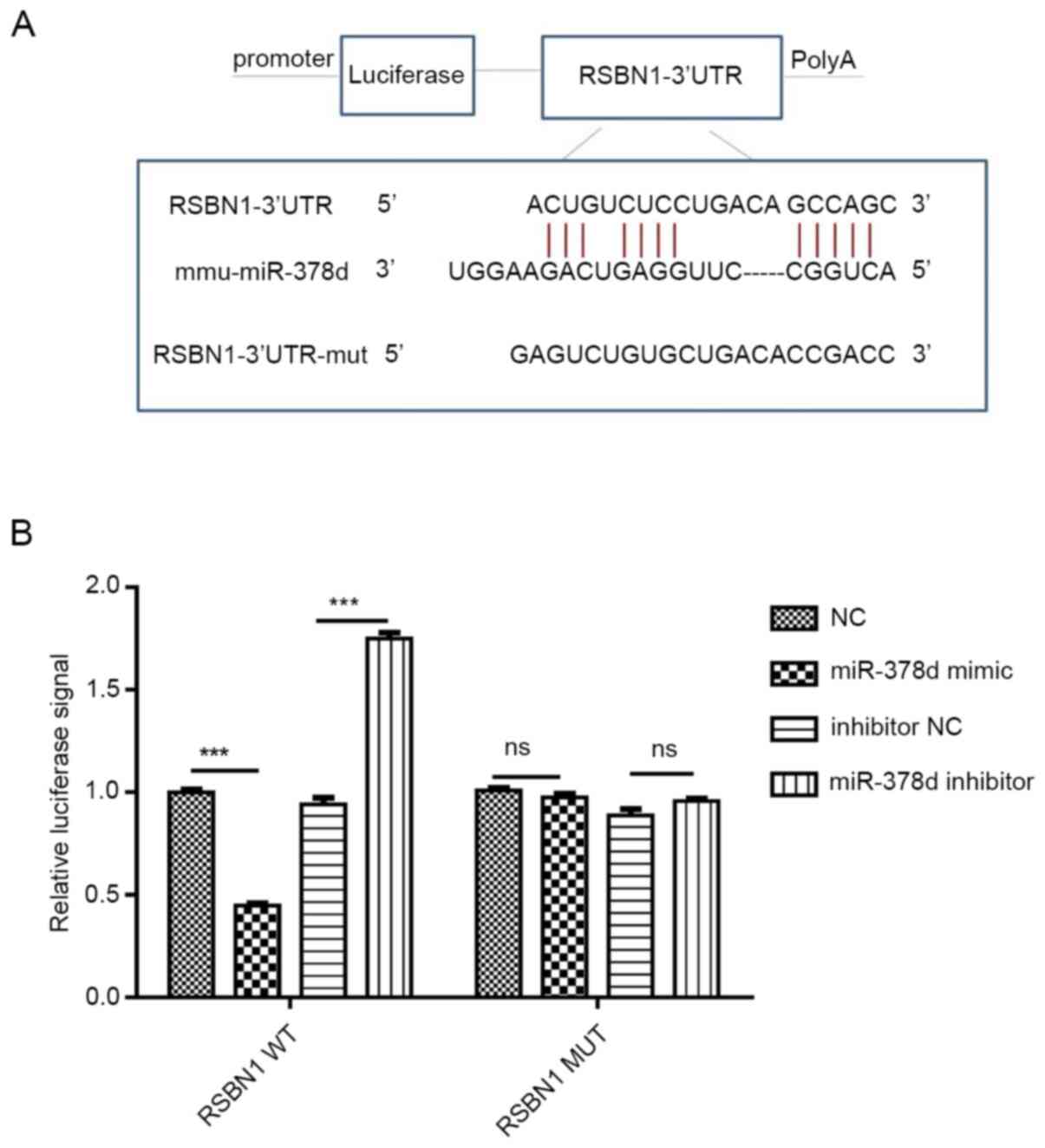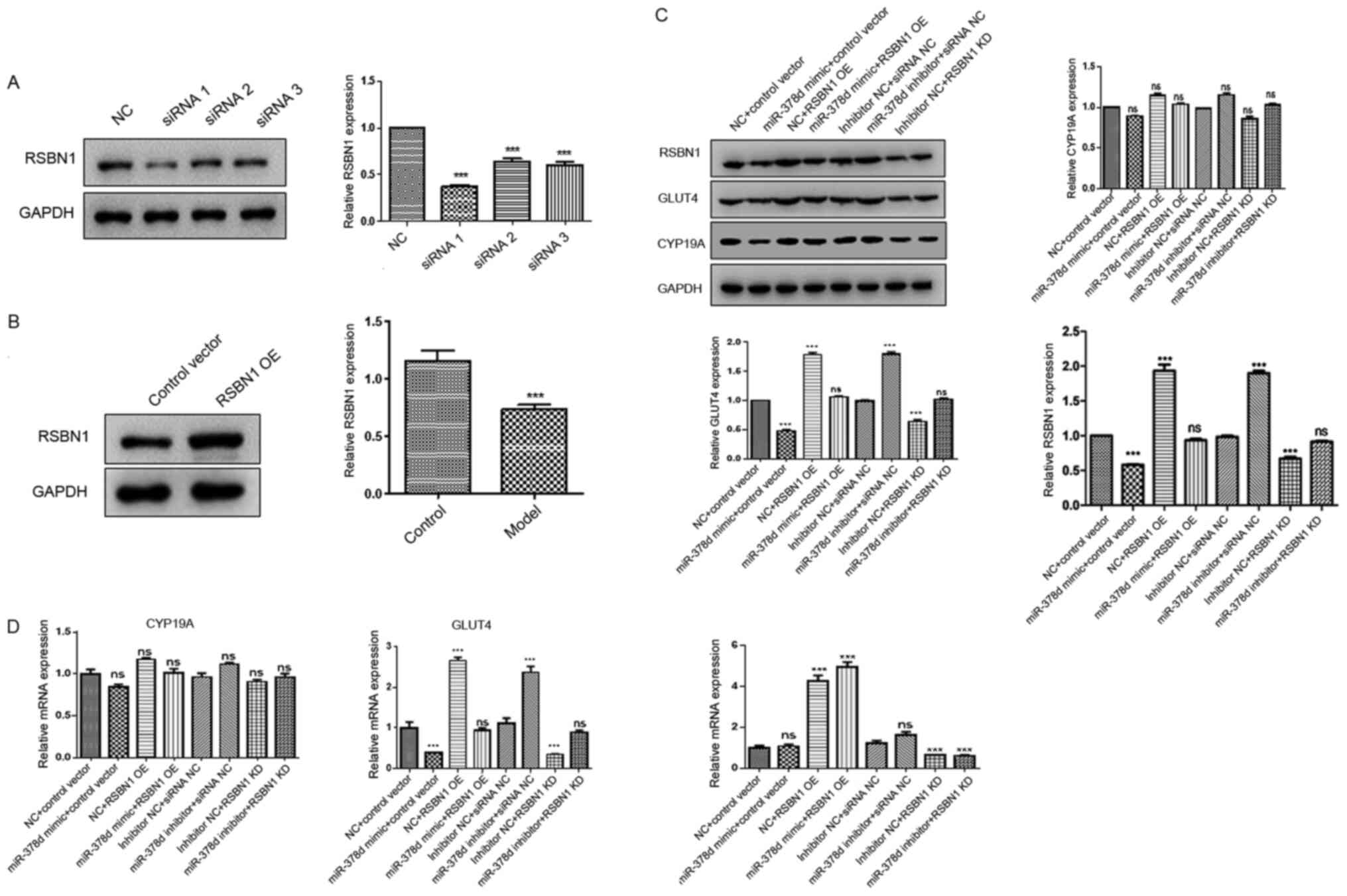|
1
|
Holick MF: Vitamin D deficiency. N Engl J
Med. 357:266–281. 2007. View Article : Google Scholar : PubMed/NCBI
|
|
2
|
Holick MF, Binkley NC, Bischoff-Ferrari
HA, Gordon CM, Hanley DA, Heaney RP, Murad MH and Weaver CM:
Guidelines for preventing and treating vitamin D deficiency and
insufficiency revisited. J Clin Endocrinol Metab. 97:1153–1158.
2012. View Article : Google Scholar : PubMed/NCBI
|
|
3
|
Nerhus M, Berg AO, Simonsen C, Haram M,
Haatveit B, Dahl SR, Gurholt TP, Bjella TD, Ueland T, Andreassen
OA, et al: Vitamin D Deficiency Associated With Cognitive
Functioning in Psychotic Disorders. J Clin Psychiatry.
78:e750–e757. 2017. View Article : Google Scholar : PubMed/NCBI
|
|
4
|
Ponsonby AL, McMichael A and van der Mei
I: Ultraviolet radiation and autoimmune disease: Insights from
epidemiological research. Toxicology. 181-182:71–78. 2002.
View Article : Google Scholar : PubMed/NCBI
|
|
5
|
Ford JA, MacLennan GS, Avenell A, Bolland
M, Grey A and Witham M; RECORD Trial Group, : Cardiovascular
disease and vitamin D supplementation: Trial analysis, systematic
review, and meta-analysis. Am J Clin Nutr. 100:746–755. 2014.
View Article : Google Scholar : PubMed/NCBI
|
|
6
|
Gagnon C, Lu ZX, Magliano DJ, Dunstan DW,
Shaw JE, Zimmet PZ, Sikaris K, Ebeling PR and Daly RM: Low serum
25-hydroxyvitamin D is associated with increased risk of the
development of the metabolic syndrome at five years: results from a
national, population-based prospective study (The Australian
Diabetes, Obesity and Lifestyle Study: AusDiab). J Clin Endocrinol
Metab. 97:1953–1961. 2012. View Article : Google Scholar : PubMed/NCBI
|
|
7
|
Muscogiuri G, Mitri J, Mathieu C,
Badenhoop K, Tamer G, Orio F, Mezza T, Vieth R, Colao A and Pittas
A: Mechanisms in endocrinology: Vitamin D as a potential
contributor in endocrine health and disease. Eur J Endocrinol.
171:R101–R110. 2014. View Article : Google Scholar : PubMed/NCBI
|
|
8
|
van Schoor N and Lips P: Global Overview
of Vitamin D Status. Endocrinol Metab Clin North Am. 46:845–870.
2017. View Article : Google Scholar : PubMed/NCBI
|
|
9
|
Tanamura A, Nomura S, Kurauchi O, Furui T,
Mizutani S and Tomoda Y: Purification and characterization of
1,25(OH)2D3 receptor from human placenta. J Obstet Gynaecol (Tokyo
1995). 21:631–639. 1995. View Article : Google Scholar : PubMed/NCBI
|
|
10
|
Pérez-Fernandez R, Alonso M, Segura C,
Muñoz I, García-Caballero T and Diguez C: Vitamin D receptor gene
expression in human pituitary gland. Life Sci. 60:35–42. 1997.
View Article : Google Scholar : PubMed/NCBI
|
|
11
|
Thill M, Becker S, Fischer D, Cordes T,
Hornemann A, Diedrich K, Salehin D and Friedrich M: Expression of
prostaglandin metabolising enzymes COX-2 and 15-PGDH and VDR in
human granulosa cells. Anticancer Res. 29:3611–3618.
2009.PubMed/NCBI
|
|
12
|
Parikh G, Varadinova M, Suwandhi P, Araki
T, Rosenwaks Z, Poretsky L and Seto-Young D: Vitamin D regulates
steroidogenesis and insulin-like growth factor binding protein-1
(IGFBP-1) production in human ovarian cells. Horm Metab Res.
42:754–757. 2010. View Article : Google Scholar : PubMed/NCBI
|
|
13
|
Zhao J, Huang X, Xu B, Yan Y, Zhang Q and
Li Y: Whether vitamin D was associated with clinical outcome after
IVF/ICSI: A systematic review and meta-analysis. Reprod Biol
Endocrinol. 16:132018. View Article : Google Scholar : PubMed/NCBI
|
|
14
|
Jiang R, Ding L, Zhou J, Huang C, Zhang Q,
Jiang Y, Liu J, Yan Q, Zhen X, Sun J, et al: Enhanced HOXA10
sumoylation inhibits embryo implantation in women with recurrent
implantation failure. Cell Death Discov. 3:170572017. View Article : Google Scholar : PubMed/NCBI
|
|
15
|
Wei Z, Yoshihara E, He N, Hah N, Fan W,
Pinto AFM, Huddy T, Wang Y, Ross B, Estepa G, et al: Vitamin D
Switches BAF Complexes to Protect β Cells. Cell. 173:1135–1149.e15.
2018. View Article : Google Scholar : PubMed/NCBI
|
|
16
|
Liang Y, Ridzon D, Wong L and Chen C:
Characterization of microRNA expression profiles in normal human
tissues. BMC Genomics. 8:1662007. View Article : Google Scholar : PubMed/NCBI
|
|
17
|
Jiang XP, Ai WB, Wan LY, Zhang YQ and Wu
JF: The roles of microRNA families in hepatic fibrosis. Cell
Biosci. 7:342017. View Article : Google Scholar : PubMed/NCBI
|
|
18
|
Weng WH, Leung WH, Pang YJ and Hsu HH:
Lauric acid can improve the sensitization of Cetuximab in KRAS/BRAF
mutated colorectal cancer cells by retrievable microRNA-378
expression. Oncol Rep. 35:107–116. 2016. View Article : Google Scholar : PubMed/NCBI
|
|
19
|
Ji KX, Cui F, Qu D, Sun RY, Sun P, Chen
FY, Wang SL and Sun HS: miR-378 promotes the cell proliferation of
non-small cell lung cancer by inhibiting FOXG1. Eur Rev Med
Pharmacol Sci. 22:1011–1019. 2018.PubMed/NCBI
|
|
20
|
Ganesan J, Ramanujam D, Sassi Y, Ahles A,
Jentzsch C, Werfel S, Leierseder S, Loyer X, Giacca M, Zentilin L,
et al: miR-378 controls cardiac hypertrophy by combined repression
of mitogen-activated protein kinase pathway factors. Circulation.
127:2097–2106. 2013. View Article : Google Scholar : PubMed/NCBI
|
|
21
|
Hyun J, Wang S, Kim J, Rao KM, Park SY,
Chung I, Ha CS, Kim SW, Yun YH and Jung Y: MicroRNA-378 limits
activation of hepatic stellate cells and liver fibrosis by
suppressing Gli3 expression. Nat Commun. 7:109932016. View Article : Google Scholar : PubMed/NCBI
|
|
22
|
Ishida M, Shimabukuro M, Yagi S, Nishimoto
S, Kozuka C, Fukuda D, Soeki T, Masuzaki H, Tsutsui M and Sata M:
MicroRNA-378 regulates adiponectin expression in adipose tissue: A
new plausible mechanism. PLoS One. 9:e1115372014. View Article : Google Scholar : PubMed/NCBI
|
|
23
|
Gungormez C, Gumushan Aktas H, Dilsiz N
and Borazan E: Novel miRNAs as potential biomarkers in stage II
colon cancer: Microarray analysis. Mol Biol Rep. 46:4175–4183.
2019. View Article : Google Scholar : PubMed/NCBI
|
|
24
|
Meerson A, Eliraz Y, Yehuda H, Knight B,
Crundwell M, Ferguson D, Lee BP and Harries LW: Obesity impacts the
regulation of miR-10b and its targets in primary breast tumors. BMC
Cancer. 19:862019. View Article : Google Scholar : PubMed/NCBI
|
|
25
|
Dupont J and Scaramuzzi RJ: Insulin
signalling and glucose transport in the ovary and ovarian function
during the ovarian cycle. Biochem J. 473:1483–1501. 2016.
View Article : Google Scholar : PubMed/NCBI
|
|
26
|
Laganà AS, Vitale SG, Ban Frangež H,
Vrtačnik-Bokal E and D'Anna R: Vitamin D in human reproduction: The
more, the better? An evidence-based critical appraisal. Eur Rev Med
Pharmacol Sci. 21:4243–4251. 2017.PubMed/NCBI
|
|
27
|
Zarnani AH, Shahbazi M, Salek-Moghaddam A,
Zareie M, Tavakoli M, Ghasemi J, Rezania S, Moravej A, Torkabadi E,
Rabbani H, et al: Vitamin D3 receptor is expressed in the
endometrium of cycling mice throughout the estrous cycle. Fertil
Steril. 93:2738–2743. 2010. View Article : Google Scholar : PubMed/NCBI
|
|
28
|
Li P, Xu X, Cao E, Yu B, Li W, Fan M,
Huang M, Shi L, Zeng R, Su X, et al: Vitamin D deficiency causes
defective resistance to Aspergillus fumigatus in mice via
aggravated and sustained inflammation. PLoS One. 9:e998052014.
View Article : Google Scholar : PubMed/NCBI
|
|
29
|
Lamas S, Carvalheira J, Gartner F and
Amorim I: C57BL/6J mouse superovulation: Schedule and age
optimization to increase oocyte yield and reduce animal use.
Zygote. Jan 15–2021.(Epub ahead of print). doi:
10.1017/S0967199420000714. View Article : Google Scholar : PubMed/NCBI
|
|
30
|
Livak KJ and Schmittgen TD: Analysis of
relative gene expression data using real-time quantitative PCR and
the 2(-Delta Delta C(T)) Method. Methods. 25:402–408. 2001.
View Article : Google Scholar : PubMed/NCBI
|
|
31
|
Mao Z, Zhao H, Qin Y, Wei J, Sun J, Zhang
W and Kang Y: Post-Transcriptional Dysregulation of microRNA and
Alternative Polyadenylation in Colorectal Cancer. Front Genet.
11:642020. View Article : Google Scholar : PubMed/NCBI
|
|
32
|
Lerchbaum E and Obermayer-Pietsch B:
Vitamin D and fertility: A systematic review. Eur J Endocrinol.
166:765–778. 2012. View Article : Google Scholar : PubMed/NCBI
|
|
33
|
Sun W, Xie H, Ji J, Zhou X, Goltzman D and
Miao D: Defective female reproductive function in
1,25(OH)2D-deficient mice results from indirect effect mediated by
extracellular calcium and/or phosphorus. Am J Physiol Endocrinol
Metab. 299:E928–E935. 2010. View Article : Google Scholar : PubMed/NCBI
|
|
34
|
Takiishi T, Gysemans C, Bouillon R and
Mathieu C: Vitamin D and diabetes. Rheum Dis Clin North Am.
38:179–206. 2012. View Article : Google Scholar : PubMed/NCBI
|
|
35
|
Aghajafari F, Nagulesapillai T, Ronksley
PE, Tough SC, O'Beirne M and Rabi DM: Association between maternal
serum 25-hydroxyvitamin D level and pregnancy and neonatal
outcomes: Systematic review and meta-analysis of observational
studies. BMJ. 346 (mar26 4):f11692013. View Article : Google Scholar : PubMed/NCBI
|
|
36
|
von Versen-Höynck F, Brodowski L, Dechend
R, Myerski AC and Hubel CA: Vitamin D antagonizes negative effects
of preeclampsia on fetal endothelial colony forming cell number and
function. PLoS One. 9:e989902014. View Article : Google Scholar : PubMed/NCBI
|
|
37
|
Fung JL, Hartman TJ, Schleicher RL and
Goldman MB: Association of vitamin D intake and serum levels with
fertility: Results from the Lifestyle and Fertility Study. Fertil
Steril. 108:302–311. 2017. View Article : Google Scholar : PubMed/NCBI
|
|
38
|
Polyzos NP, Anckaert E, Guzman L,
Schiettecatte J, Van Landuyt L, Camus M, Smitz J and Tournaye H:
Vitamin D deficiency and pregnancy rates in women undergoing single
embryo, blastocyst stage, transfer (SET) for IVF/ICSI. Hum Reprod.
29:2032–2040. 2014. View Article : Google Scholar : PubMed/NCBI
|
|
39
|
Duchow EG, Cooke NE, Seeman J, Plum LA and
DeLuca HF: Vitamin D binding protein is required to utilize
skin-generated vitamin D. Proc Natl Acad Sci USA. 116:24527–24532.
2019. View Article : Google Scholar : PubMed/NCBI
|
|
40
|
Liu C, Lai Y, Ying S, Zhan J and Shen Y:
Plasma exosome-derived microRNAs expression profiling and
bioinformatics analysis under cross-talk between increased
low-density lipoprotein cholesterol level and ATP-sensitive
potassium channels variant rs1799858. J Transl Med. 18:4592020.
View Article : Google Scholar : PubMed/NCBI
|
|
41
|
Zhang X, Mens MMJ, Abozaid YJ, Bos D,
Darwish Murad S, de Knegt RJ, Ikram MA, Pan Q and Ghanbari M:
Circulatory microRNAs as potential biomarkers for fatty liver
disease: The Rotterdam study. Aliment Pharmacol Ther. 53:432–442.
2021.PubMed/NCBI
|
|
42
|
Kurowska W, Kuca-Warnawin E, Radzikowska
A, Jakubaszek M, Maślińska M, Kwiatkowska B and Maśliński W:
Monocyte-related biomarkers of rheumatoid arthritis development in
undifferentiated arthritis patients - a pilot study. Reumatologia.
56:10–16. 2018. View Article : Google Scholar : PubMed/NCBI
|
|
43
|
Valmiki S, Ahuja V and Paul J: MicroRNA
exhibit altered expression in the inflamed colonic mucosa of
ulcerative colitis patients. World J Gastroenterol. 23:5324–5332.
2017. View Article : Google Scholar : PubMed/NCBI
|
|
44
|
Bolha L, Pižem J, Frank-Bertoncelj M,
Hočevar A, Tomšič M and Jurčić V: Identification of microRNAs and
their target gene networks implicated in arterial wall remodelling
in giant cell arteritis. Rheumatology (Oxford). 59:3540–3552. 2020.
View Article : Google Scholar : PubMed/NCBI
|
|
45
|
Ohyama K, Ohta M, Hosaka YZ, Tanabe Y,
Ohyama T and Yamano Y: Expression of anti-Müllerian hormone and its
type II receptor in germ cells of maturing rat testis. Endocr J.
62:997–1006. 2015. View Article : Google Scholar : PubMed/NCBI
|
|
46
|
Abu-Jamous B, Buffa FM, Harris AL and
Nandi AK: In vitro downregulated hypoxia transcriptome is
associated with poor prognosis in breast cancer. Mol Cancer.
16:1052017. View Article : Google Scholar : PubMed/NCBI
|
|
47
|
Xu S, Linher-Melville K, Yang BB, Wu D and
Li J: Micro-RNA378 (miR-378) regulates ovarian estradiol production
by targeting aromatase. Endocrinology. 152:3941–3951. 2011.
View Article : Google Scholar : PubMed/NCBI
|
|
48
|
Lata I, Tiwari S, Gupta A and Yadav S and
Yadav S: To Study the Vitamin D Levels in Infertile Females and
Correlation of Vitamin D Deficiency with AMH Levels in Comparison
to Fertile Females. J Hum Reprod Sci. 10:86–90. 2017. View Article : Google Scholar : PubMed/NCBI
|
|
49
|
Pearce K, Gleeson K and Tremellen K: Serum
anti-Mullerian hormone production is not correlated with seasonal
fluctuations of vitamin D status in ovulatory or PCOS women. Hum
Reprod. 30:2171–2177. 2015. View Article : Google Scholar : PubMed/NCBI
|















